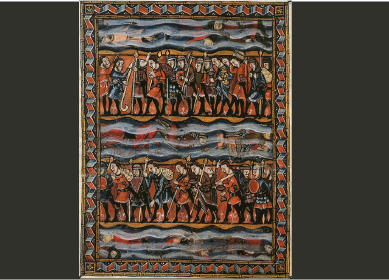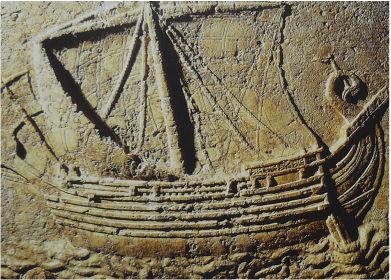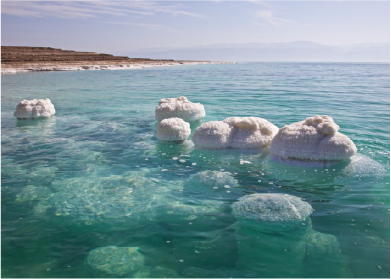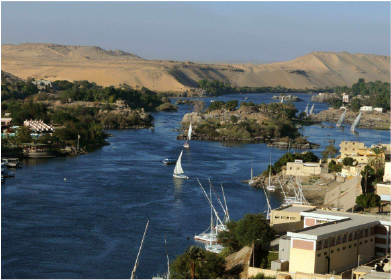Some of the best-known Bible stories involve the sea: Noah’s ark, the crossing of the Red Sea, Jonah, the stilling of the storm, Jesus walking on water, Paul’s shipwreck. Often, readers view the sea negatively in such stories, but a closer look reveals a more complicated picture.
What is the place of the sea in creation?
Genesis 1 tells how God gathered the waters together to enable the dry land to appear, thereby making earth and seas (Gen 1:9–10). God then made the waters “swarm with … living creatures” (Gen 1:20). However, at the flood, God reverses this creative process, with the waters above and below the earth, once separated in creation, inundating the earth again (Gen 7:11; 8:2). Elsewhere in the Hebrew Bible, God stirs up the sea so its waves roar (Isa 51:15; Jer 31:35) but also calms the wind and sea (Ps 107:29). Jesus’s stilling of the storm in the New Testament (Mark 4:35–41), like his walking on water (Matt 14:22–33), therefore marks him out as performing acts of which only God is capable. As God is the sea’s creator, it praises God (Ps 69:34; cf. Ps 148:7; Isa 42:10) and responds in joy to his coming (Ps 96:11; 98:7–9).
Is the sea under God’s control?
The Bible envisages the sea as under God’s control. For example, in the story of Jonah, the reluctant prophet flees by boat to escape his mission to Nineveh. A terrible storm brews up, so the sailors take lots to see on whose account this has arisen. When the lot falls on Jonah he is cast overboard, whereupon the sea immediately calms (Jonah 1). Evidently, the sea enacts God’s will here. At the crossing of the Red Sea, the sea parts when Moses lifts his staff over it, making a wall of water through which the Israelites walk to safety. The sea then overwhelms the pursuing Egyptian army (Exod 14:21–29). Even though the sea’s waves may toss and roar, God sets firm boundaries that the waters cannot pass (Jer 5:22; cf. Prov 8:29), for he is far mightier than them and as king ensures the safety of the habitable earth (Ps 93).
Fearsome or fragile?
In the Bible, the sea is—quite rightly—viewed as fearsome and dangerous. Its roaring is likened to the sound of armies (e.g., Jer 6:23, 50:42), and it is also seen as the home of monstrous beasts that are terrifying to humans. Depending on the context, these sea monsters are either a delight to God (Ps 104:25–26; Job 41) or slain by him (Job 26:12–13; Ps 74:13–14; 89:9–10; Isa 27:1; 51:9–10).
The dangers of sea travel are amply illustrated in Ps 107:23–32, where God is seen as raising and calming a storm, and in the story of Paul’s shipwreck in Acts 27, where God’s angel promises his survival even though the ship will be lost. Memorably, the book of Revelation talks of a future time when the sea will be no more (Rev 21:1), perhaps reflecting the fear in which it was held.
In a contrasting vision of a utopian future, Ezekiel envisages a river flowing out under the temple door that will “heal” the Dead Sea, enabling it to accommodate abundant fish (Ezek 47:1–12). This indicates how vital water—including the sea—is to life. However, even the sea is not invulnerable, since a large body of water can dry up (Job 14:11–12) or, like other parts of creation, wither due to human sin, leading to fish deaths and distressing those who depend on it (Isa 19:5–10).
Bibliography
- Levenson, Jon D. Creation and the Persistence of Evil: The Jewish Drama of Divine Omnipotence. Princeton University Press, 1994.
- Patai, Raphael. The Children of Noah: Jewish Seafaring in Ancient Times. Princeton University Press, 1998.
- Patton, Kimberley C. The Sea Can Wash Away All Evils: Modern Marine Pollution and the Ancient Cathartic Ocean. Columbia University Press, 2007.
- Srokosz, Meric, and Rebecca S. Watson. Blue Planet, Blue God: The Bible and the Sea. SCM, 2017.





